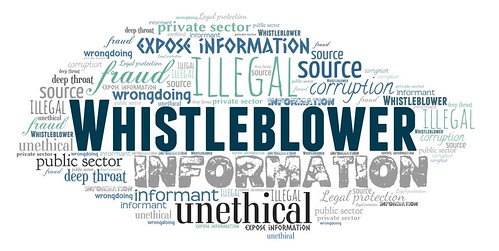Search
The National Labor Relations Board ain’t got nothin’ on NJ when it comes to COVID-19 whistleblowers

Image Credit EpicTop10.com (Attribution 2.0 Generic (CC By 2.0))
If, during this pandemic, you do business in a state with a robust whistleblower law, keep reading.
Yesterday, over at the Coronavirus Law Blog, my friend Jon Hyman wrote here about a nurse who was fired after refusing to share gowns for fear of the nurse’s safety and that of the nurse’s family.
The nurse claimed that the employer violated the National Labor Relations Act by retaliating against the nurse for engaging in a protected concerted activity (in this case, a group discussion with co-workers about the risks of sharing hospital gowns). However, as Jon points out, the National Labor Relations Board disagreed in this Advice Memo, concluding that the nurse was acting alone and not for the benefit of the nurse’s co-workers.
One of Jon’s takeaways from his post is that while the nurse’s claims may have failed under the National Labor Relations Act, those claims could have just as easily formed a viable claim under OSHA, for example, or state law.
I agree. Indeed, let’s talk about how this might have played out in a state like New Jersey, which has one of the strongest whistleblower laws in the country. It’s called the Conscientious Employee Protection Act or CEPA, for short. And I expect many safety-related claims like these to pop up in the coming months.
A plaintiff states a claim under CEPA if s/he can establish four elements:
- the plaintiff reasonably believed (i.e., the plaintiff can be wrong about it) that his or her employer is doing something that violates either a law, rule, regulation or a clear mandate of public policy (including improper quality of patient care in a healthcare setting).
- the plaintiff blows the whistle (e.g., complains to management)
- the employer takes an adverse employment action against the plaintiff; and
- a nexus exists between 2 and 3.
Taking the nurse’s allegations as true, let’s see how they play out.
- Nurse believes that sharing gowns is icky and compromises the nurse’s safety and that of the nurse’s family. Let’s give the benefit of the doubt and assume that the nurse can articulate a broader safety risk for patients too.
- Nurse complains to management.
- Nurse gets fired.
If the nurse can show the complaint motivated the termination, that’s a winning CEPA claim.
As Jon notes in his post, terminating an employee for complaining about workplace safety sends the wrong message generally to all employees. But, in New Jersey, it will also cost you the prevailing plaintiff’s wage losses, compensatory damages, punitive damages, and attorney’s fees.
 The Employer Handbook Blog
The Employer Handbook Blog


